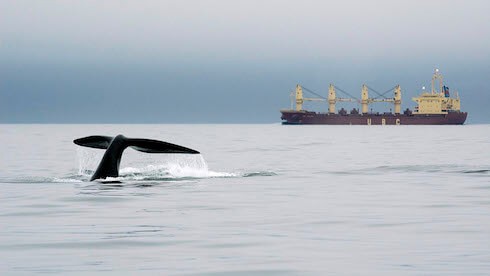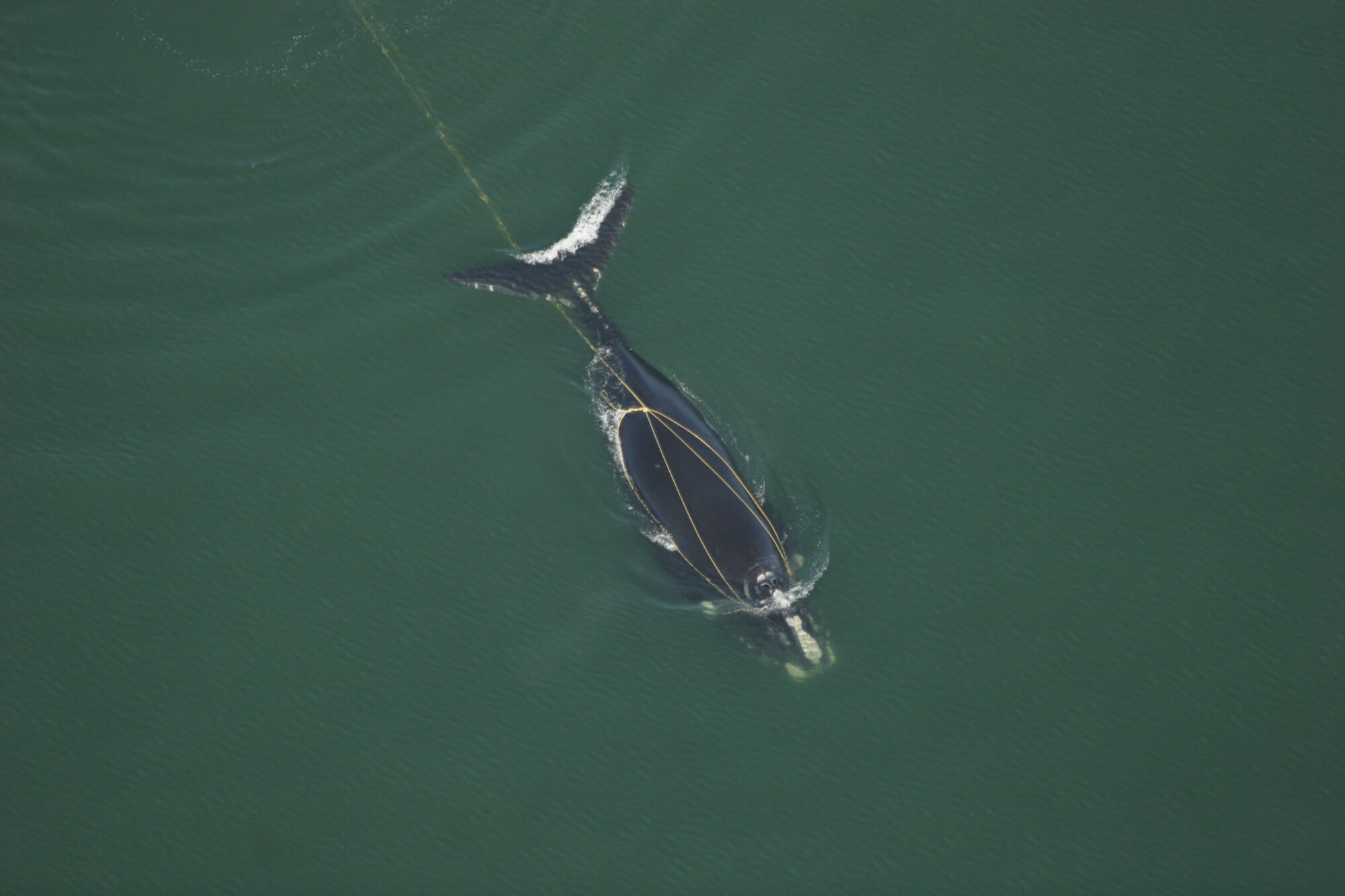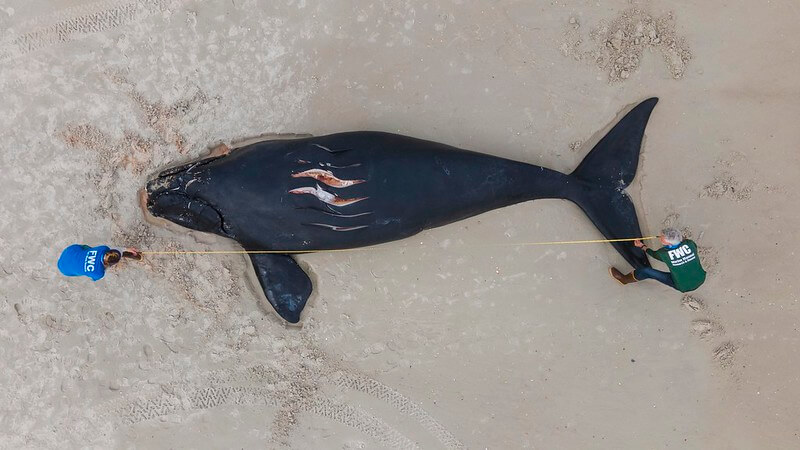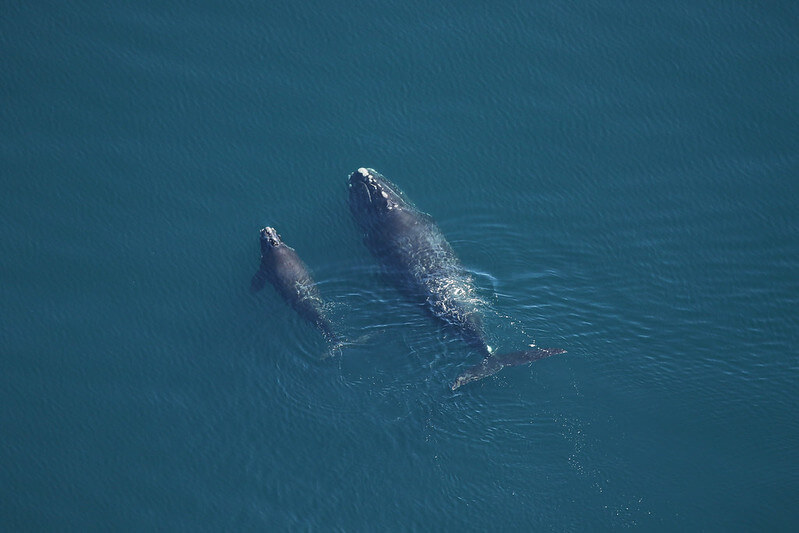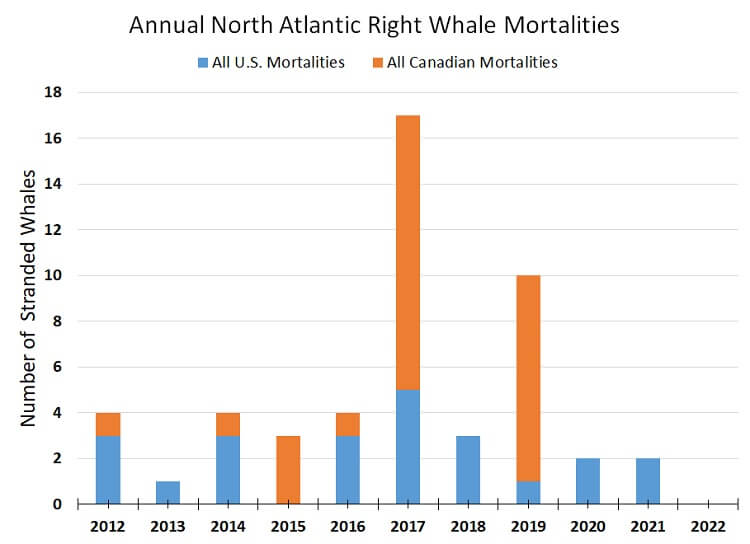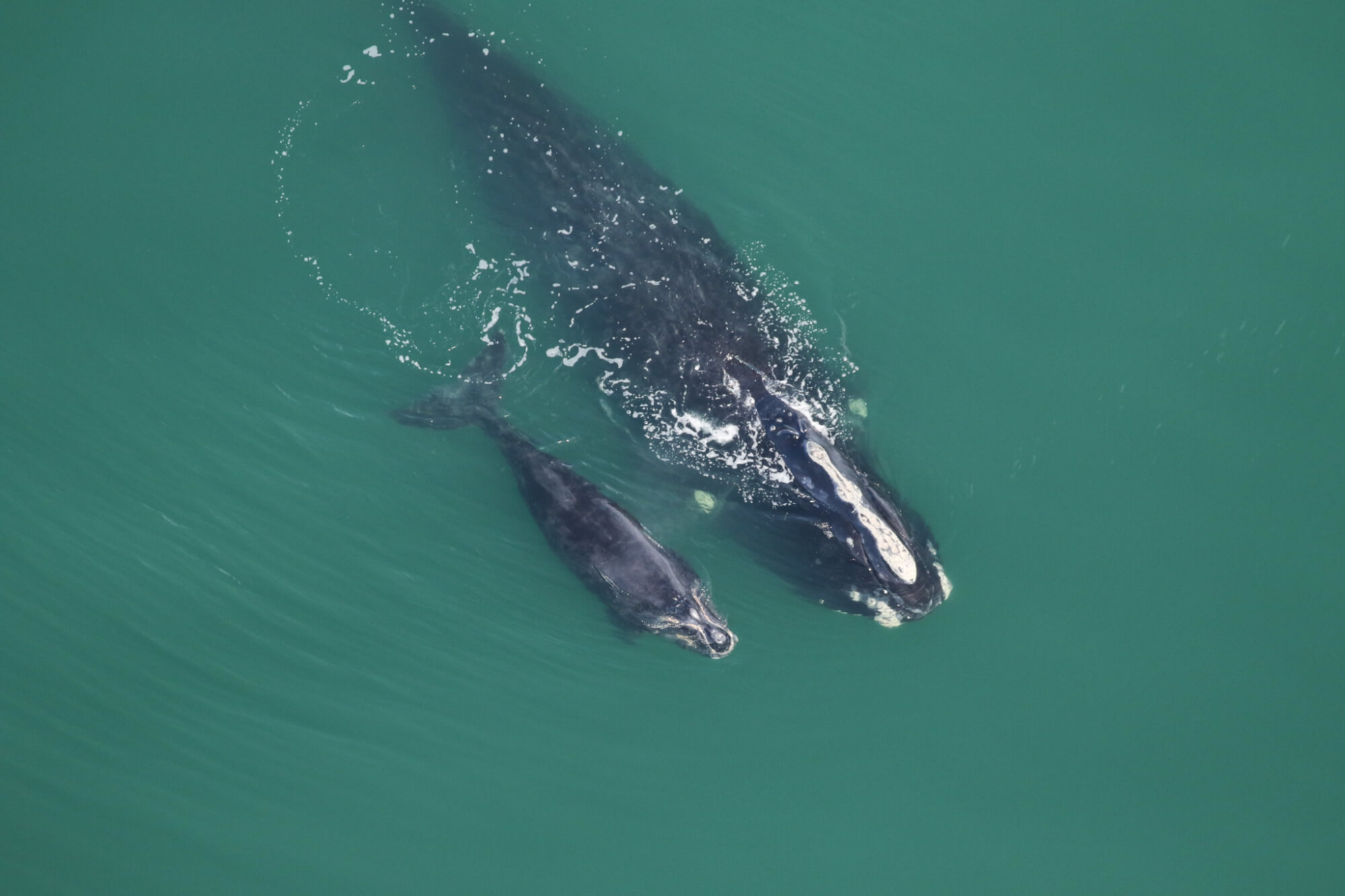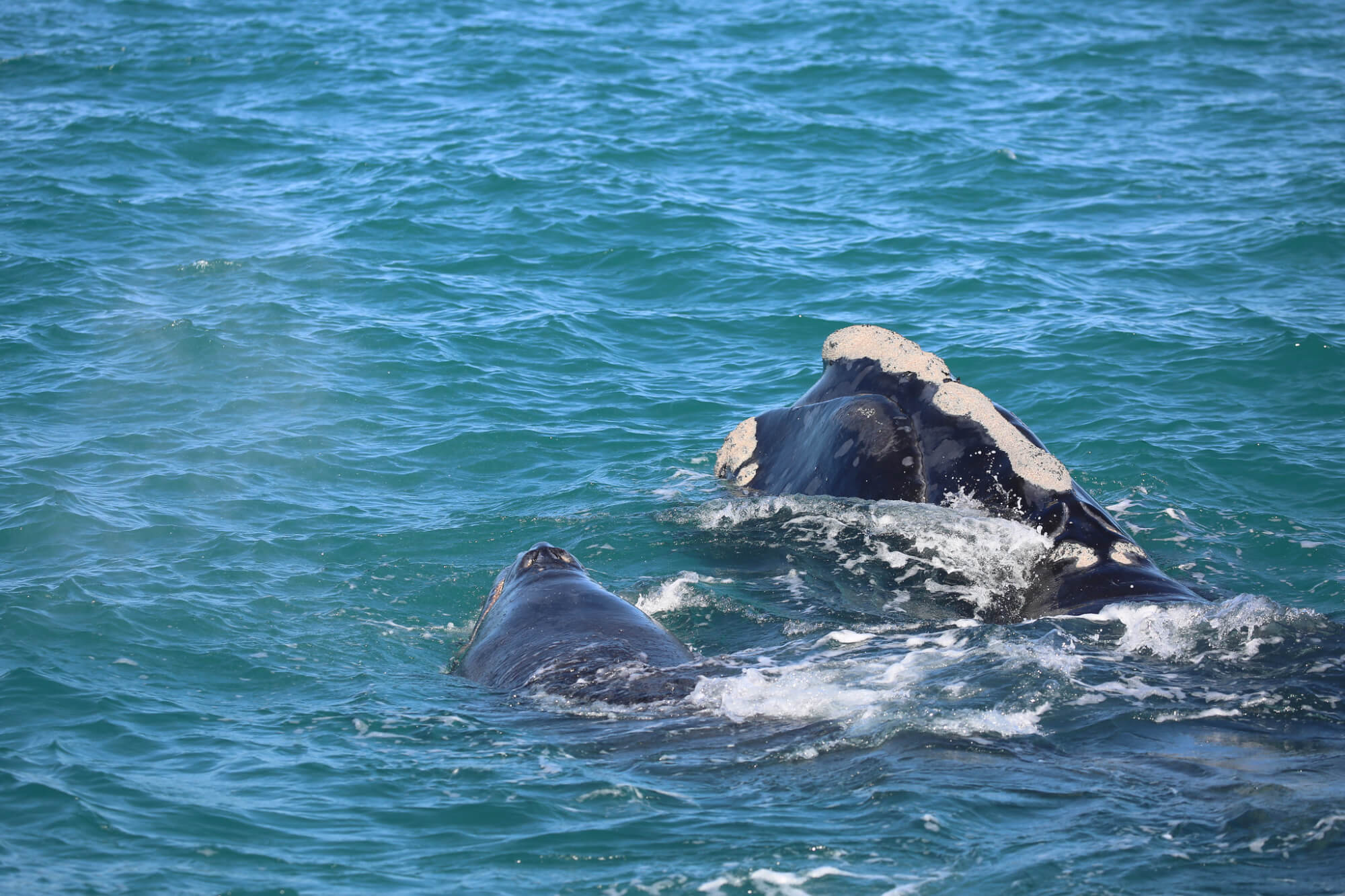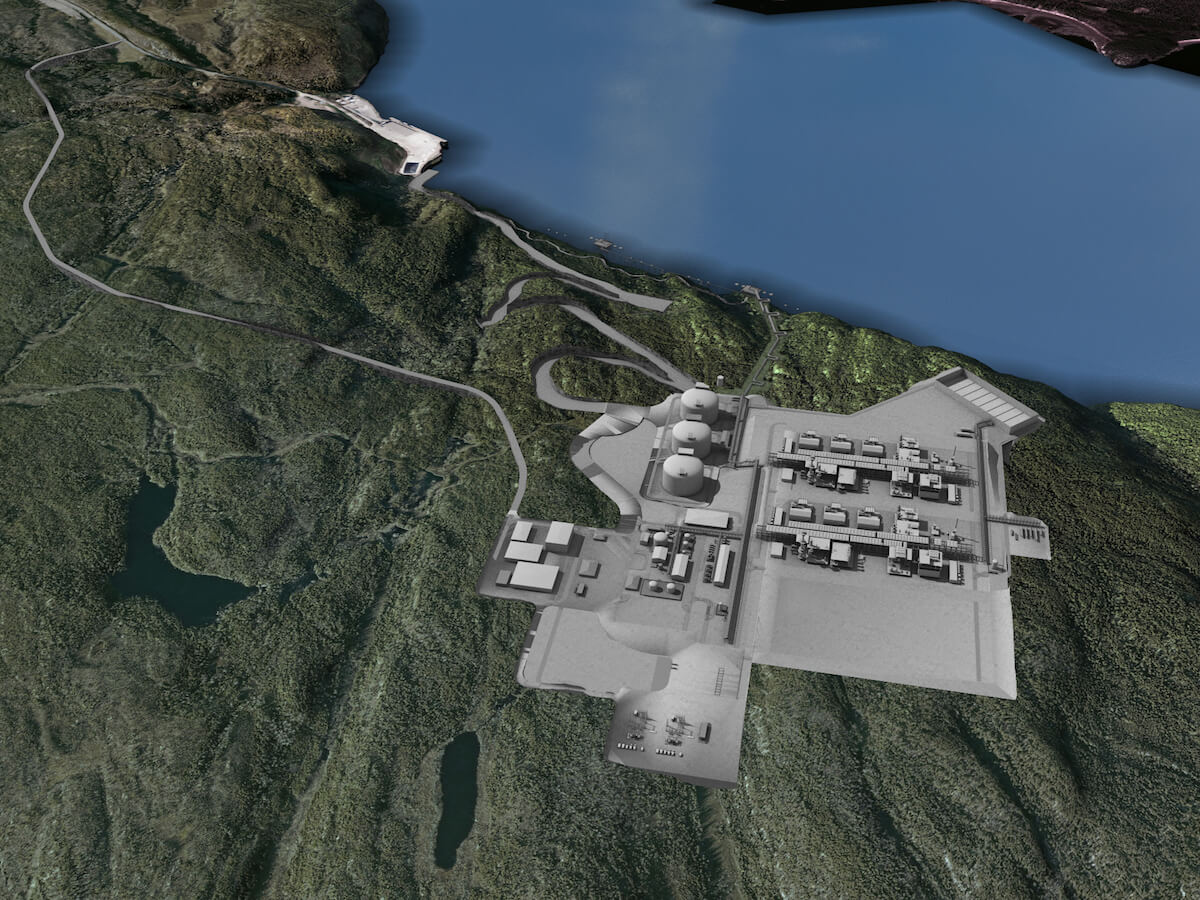The North Atlantic right whale is a particularly vulnerable cetacean species, currently numbering fewer than 350 individuals. The survival of these animals, which hangs by a thread, is being put to the test by their presence in highly industrialized waters characterized by intense human activity. Their fate, which remains to be determined, will depend on our ability to share the maritime environment with these giants.
North Atlantic right whales – also called black right whales – are plump and quite slow, which made them prime targets for centuries as intensive commercial whaling drove them to the brink of extinction. Today, the last population of North Atlantic right whales lives primarily along the east coast of the United States and Canada, and faces new dangers such as entanglements in fishing gear and ship strikes. In recent years, climate change appears to be altering the habits of the right whale’s prey, resulting in shifts in this species’ migratory patterns. Traditionally, they frequented the Bay of Fundy during the summer, an area that they began to abandon in 2010 as they increasingly ventured into the Gulf of St. Lawrence. This change in distribution has triggered a sudden spike in mortalities.
Since 2017, 34 carcasses have been found in US and Canadian waters, an exceptional mortality level that cannot be offset by the paucity of births recorded over the same period. Right whales are currently subject to heightened surveillance and special protection measures. Will this be enough to save this species from the verge of extinction?
Throughout the year 2022, find on this page the news about right whales.
In our archives, find the events of the years 2017, 2018, 2019, 2020 and 2021.
News in 2022
Six fines totaling $123,000 were imposed on vessels in 2021 for failing to comply with measures put in place to protect right whales in the Gulf of St. Lawrence. Transport Canada is closely monitoring the situation of North Atlantic right whales. These hefty fines have mostly been issued for speeding violations.
Source: 123 000 $ en amendes pour non-respect des mesures de protection des baleines noires (Radio-Canada, March 3, 2022)
The majority of reported fatalities involving Atlantic right whales are caused by entanglements in fishing gear. For several years now, researchers have been working with the fishing industry to develop ropeless fishing gear designed to eliminate the risk of entanglement. And thanks to investments from Fisheries and Oceans Canada, this new technology may soon be more affordable and accessible to the fishing community.
Source: Ropeless gear aimed at preventing right whale deaths may be commercially viable soon (CBC, February 22, 2022)
A documentary by Canadian director Nadine Pequeneza chronicles the precarious plight of the North Atlantic right whale. The film features several scientific teams tracking North Atlantic right whales as they migrate between Florida and northern Canada and features Snow Cone, a 17-year-old female whose wanderings together with her calf are tracked for a full year.
Source: Un documentaire choc sur les baleines noires présenté en Atlantique (Radio-Canada, February 10, 2022)
For the second year in a row, North Atlantic right whales are having an excellent calving season with a total of 13 calves as of February 1. This is a potentially encouraging sign for this species, which has been showing low birth rates and significant mortality since 2017. We’ll have to wait until April 2022 for the final tally of newborns! As of March 24, a total of 15 births have been reported.
To keep up with the arrival of baby whales, follow the latest news from the New England Aquarium.
Source: Une bonne année de naissances pour les baleines noires (Le Devoir, February 2, 2022)
A report published by the organization Oceana revealed lacklustre results. The majority of vessels transiting the Cabot Strait have not been complying with the voluntary 10-knot speed restrictions put in place by Transport Canada to protect the North Atlantic right whale. The organization indicates that the rate of non-compliance is too high for this voluntary measure to be considered a success.
Source: (2021) Vance, A., K. Elmslie and R. McIver.Au bord de l’extinction :Protéger les baleines noires de l’Atlantique Nord. Oceana, 15 pages.
A recent study conducted by the New England Aquarium shows that DNA can be used to better understand the survival of North Atlantic right whale calves, their growth rate and their life history. Researchers were able to determine the age of 12 whales, match 11 of them with their biological mothers and show that four calves previously thought to be dead were in fact still alive. These results demonstrate the importance of genetic sampling to monitor this species in the wild.
Source: (2022) Hamilton, P.K., B.A. Frasier, L.A. Conger, R.C. George, K.A. Jackson and T.R. Frasier. New study determines parentage, age, and survival of North Atlantic right whales using genetic testing. Mammalian Biology.
When the topic of right whales and their predicament come up, fingers most often point to climate change as well as human maritime activities. However, these factors are not the only ones responsible for the species’ current situation. In his new book, We Are All Whalers, researcher Michael J. Moore paints a comprehensive picture of the challenges right whales face while emphasizing the role each and every one of us plays in their conservation.
Whales Online spoke with this passionate researcher and philosopher. Check out the interview here!
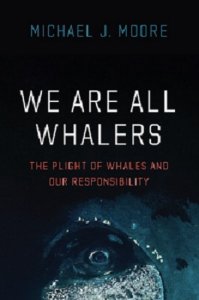
Casualties Overview
North Atlantic right whales are currently experiencing what is being called an “exceptional mortality event.” Indeed, since 2017, annual mortality rates have been particularly high and represent a real danger for the survival of this fragile and vulnerable species. This is why births, deaths and accidents involving these whales are being closely monitored in Canadian and US waters.
A total of 34 carcasses have been identified and 15 individuals seriously injured by entanglement or collision have been reported since the start of this period. In 2020 and 2021, however, no right whale deaths were reported in Canada.
Décès (carcasses identifiées)
| Year | Carcasses in the U.S. | Carcasses in Canada | Total |
| 2017 | 5 | 12 | 17 |
| 2018 | 3 | 0 | 3 |
| 2019 | 1 | 9 | 10 |
| 2020 | 2 | 0 | 2 |
| 2021 | 2 | 0 | 3 |
| 2022 (ongoing) | 0 | 0 | 0 |
| 13 | 21 | 34 |
Figures from the NOAA. Last updated on March 8, 2022.
Recap of serious incidents
The country indicated corresponds to the location where the entangled or injured animal was initially observed and may or may not be representative of the location where the incident actually occurred.
| Year | Entanglements in the U.S. | Entanglements in Canada | Collisions in the U.S. | Collisions in Canada |
| 2017 | 1 | 1 | 0 | 0 |
| 2018 | 3 | 2 | 0 | 0 |
| 2019 | 0 | 1 | 0 | 0 |
| 2020 | 3 | 0 | 1 | 0 |
| 2021 | 2 | 1 | 1 | 0 |
| 2022 (ongoing) | 0 | 0 | 0 | 0 |
Figures from the NOAA. Last updated on March 8, 2022.
Births
In the winter of 2021-2022, North Atlantic right whales have been experiencing an excellent calving season for a second consecutive year since the start of the exceptional mortality event. This makes these years the two most successful seasons since 2016! Encouraging news for this population that now has fewer than 100 mature females.
| Season (winter of the year…) | Number of calves counted |
| 2009 | 39 |
| 2010 | 19 |
| 2011 | 22 |
| 2012 | 7 |
| 2013 | 20 |
| 2014 | 11 |
| 2015 | 17 |
| 2016 | 14 |
| 2017 | 5 |
| 2018 | 0 |
| 2019 | 7 |
| 2020 | 10 |
| 2021 | 20 |
| 2022 (ongoing) | 15 |
Figures from the NOAA. Last updated on March 8, 2022.
Links and Resources
Learn more about the species:
North Atlantic right whale identification sheet
Recognize individuals and discover their history:
North Atlantic right whale photo-identification catalog
Where are the right whales right now?
Interactive maps of right whale sightings: WhaleMap and Attentif aux baleines
Surveillance and prevention in Canada:
Learn about Fisheries and Oceans Canada’s right whale monitoring and surveillance activities in Canada
Understanding Fisheries and Oceans Canada’s 2022 fisheries management measures to protect right whales
Learn about Transport Canada’s collision avoidance measures
More resources:
Summary of the unusual mortality event (2017-2022 figures) by NOAA – Fisheries
Find the details of the 2022 birthing season compiled by NOAA-Fisheries
North Atlantic Right Whale Consortium (NARWC) annual population status report – Annual report card
2020 annual report by the Anderson Cabot Center for Ocean Life
Reports and documentaries:
Entangled (2020) – a film by David Abel and Andy Laub
Les baleines noires (2017) – Report by Découverte on Tou.Tv
Deep Trouble (2017) – A six-episode podcast by the CBC
Social media:
New England Aquarium Right Whale Research Program (Facebook)
Center for coastal studies (Facebook)


